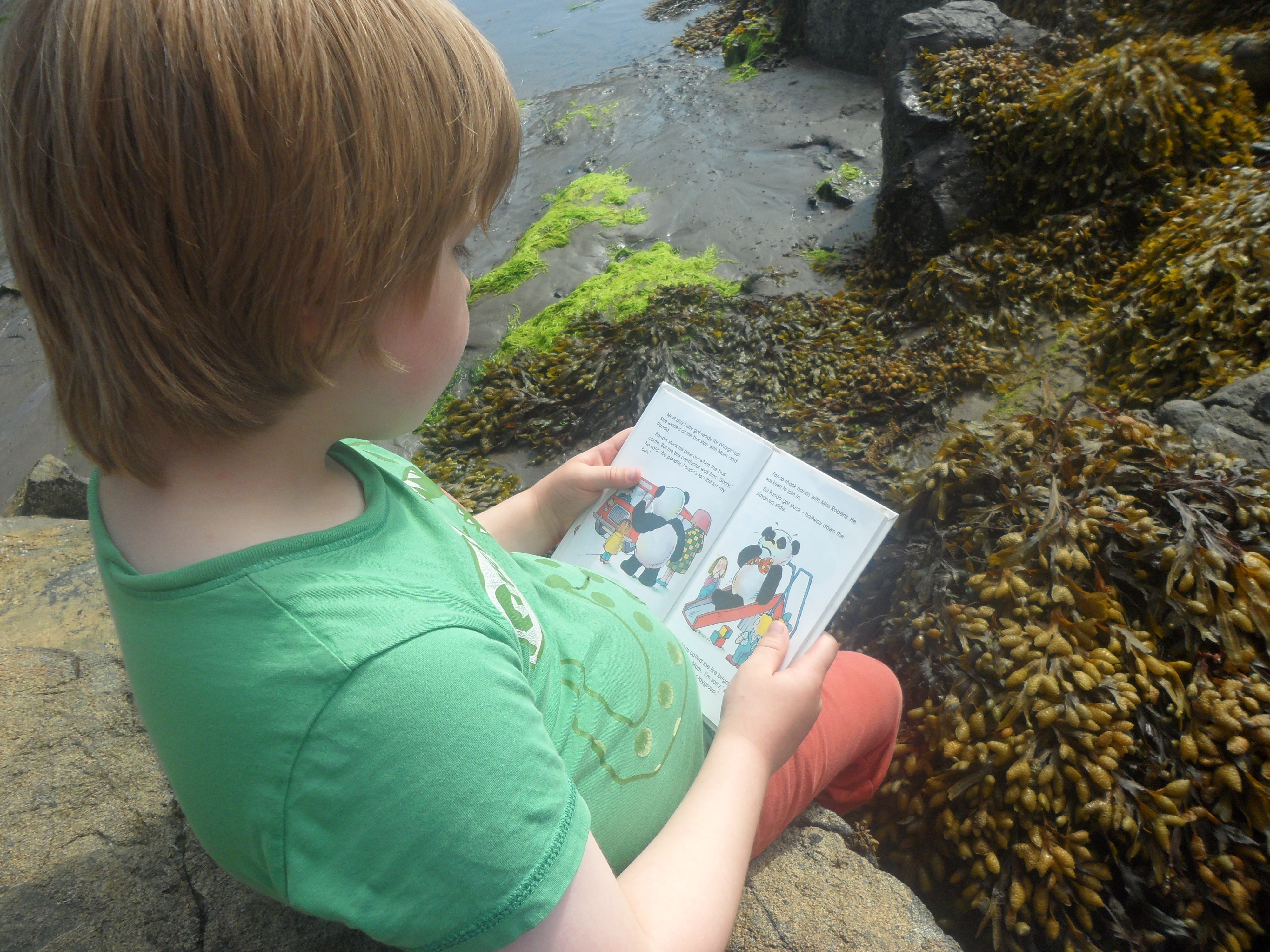
You don’t have to sit at a desk in order to learn.
Learning loss is always a hot topic (excuse the pun) over the summer holidays. Some education professionals believe that the summer break is too long and there are occasional calls to reduce it. I disagree. Routine, rules and formal learning are an essential part of childhood (they do, after all, prepare us for adulthood) but children also benefit from unstructured free time. Who among us would take away from children the sharp thrill of that final school bell, immediately followed by a gleeful stampede out of the school gates and straight into six weeks of unbroken free time?

Interacting with a screen is not restful.
Nevertheless, we parents and carers still worry about our children suffering learning loss and falling behind between now and September. Some come to our summer school for an intensive 75 minute tuition session each week and I’m not discouraging that – particularly if your child is sitting entrance exams in September. Having said that, there are lots of activities you can do to help reinforce your child’s school learning over the summer break.
Here are Better Tuition’s 4 ‘R’s for unstructured learning to help avoid summer learning loss:
Rest
The school year is long and most children have to work hard to keep up – so plenty of rest is essential at this time of year. Make sure your child gets enough sleep over the summer holidays, otherwise they will be fractious and prone to complaining. Limit screen time as much as you can: one hour a day really is too much stimulation. Sitting down using a tablet is not resting. When children’s screens are taken away, they complain but soon engage in imaginative or constructive play. You can read more about the harmful effects of too much screen time here in a previous post of mine. Rest is the first and most important ‘R’.
Run Around
How does sporting activity impact on academic progress? Quite significantly. If you’d like to read up on the research around this subject, click through to this page – or you can just take my word for it that a minimum 60 minutes of physical activity per day increases neuro-transmitters, enables better oxygen flow to the brain, builds self-confidence and encourages a disciplined approach to life in general. So do make sure your child has plenty of running around time in the holidays and try to factor in some sport. Running around is the second ‘R’ – and, like the others, is important at all times of the year.
Read
Reading supports children’s learning in every single part of their schooling, from maths to PE to art and design. Nothing else has such a great impact on your child’s ability to learn as their ability to read. Visit the library (check out their Summer Reading Challenge), browse charity shops for fabulous books or call in to Urmston Bookshop. Don’t just encourage your child to read on his/ her own: reading aloud to your child will allow you to explore challenging texts together, thereby improving their vocabulary, grammar and comprehension. If your child is in Year 4 or 5, have a look at our Summer Reading List. Reading is the third ‘R’ – and the one that will have the greatest impact on your child’s progress in school.
Responsibility
Finally, summer is a good time to get your child to take on some regular responsibility, such as washing up, weeding the garden or making their own breakfast. It helps maintain some routine but offers a change from the formal routines of schooling. It introduces discipline in a way that some children find enjoyable (so I’m told). Responsibility is the fourth ‘R’.
We wish you a wonderful summer break, whatever you are doing and wherever you are going. Our term ends this Saturday, 23rd July (with summer school opening on Tuesday, 26th July). Autumn term begins on Monday 5th September. In the meantime, if you would like to book in for summer school or arrange a free assessment/ tuition in the new year, please email us at info@bettertuition.co.uk. We are here to help.

